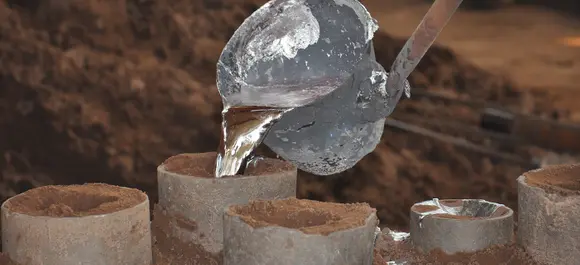Mobile:+86-311-808-126-83
Email:info@ydcastings.com
French
Top Metal Suppliers & Casting Molds - Where to Get Quality Metal
- Introduction to sourcing industrial metals
- Technical advantages of modern metal casting
- Global foundry leaders comparison
- Local mold sourcing strategies
- Customization solutions for specialized needs
- Industry application case studies
- Decision-making framework for metal procurement

(where to get metal)
Where to Get Metal: Starting Your Sourcing Journey
Identifying reliable metal sources remains a critical challenge for manufacturers worldwide. Global demand for cast metals grew by 4.2% annually from 2020-2023, reaching 117.3 million metric tons according to the World Foundry Organization. When determining where to get metal
components, engineers evaluate three key parameters: minimum order quantities (MOQs), ISO certifications, and regional logistics networks. Industrial buyers face particular difficulties when sourcing rare alloys like beryllium copper or titanium aluminides, where only 12-15 foundries worldwide possess the necessary technical capabilities.
Technological Breakthroughs in Modern Casting
Advanced foundries now employ revolutionary techniques that enhance material properties while reducing waste. Vacuum-assisted casting eliminates gas porosity by maintaining 0.005-0.01 atm pressure during pouring, increasing tensile strength by 15-22% compared to traditional methods. Top manufacturers utilize real-time spectral analysis that identifies alloy composition deviations within 0.3% accuracy during pouring. New binder systems for sand casting have reduced organic emissions by 67% since 2018 while improving surface finish quality to 3.2μm Ra, comparable to machining results.
Automated flaskless molding lines achieve 95-98% sand reclamation rates through advanced thermal reconditioning processes. Simulation-driven solidification modeling prevents shrinkage defects in complex geometries by predicting thermal gradients with 97% accuracy. These innovations enable mass production of components with wall thicknesses under 2mm – impossible until recently.
Global Foundry Leaders Comparison
Selecting the right manufacturing partner requires evaluating technical capabilities against project requirements. The following facilities represent industry leaders across different specializations:
| Foundry | Specialty Alloys | Max Cast Weight (kg) | Tolerance Standards (mm) | Lead Time (weeks) |
|---|---|---|---|---|
| PCC Airfoils (USA) | Nickel superalloys | 150 | ±0.15 | 10-14 |
| Georg Fischer (Switzerland) | Duplex stainless | 4500 | ±0.8 | 6-8 |
| Nemak (Mexico) | Automotive aluminum | 35 | ±0.2 | 3-5 |
| Sinosteel (China) | Tool steels | 18000 | ±1.5 | 8-12 |
| Kurimoto (Japan) | High-silicon iron | 9000 | ±0.6 | 7-9 |
Industry leaders maintain distinct competitive advantages: European foundries typically excel in precision components under 100kg, while Asian facilities dominate large-scale production runs exceeding 5,000 units. North American manufacturers lead in aerospace-grade materials, holding 78% of NADCAP-certified facilities globally.
Navigating Local Mold Resources
Effective sourcing combines global partnerships with regional mold expertise. For projects requiring rapid prototyping or low-volume production, local foundries within 200 miles offer significant advantages. On-site pattern inspections reduce approval cycles by 30-40% while minimizing shipping damage to delicate sand molds. Urban industrial zones in the American Midwest, German Ruhr Valley, and Japanese Chūbu region maintain dense networks of specialized tooling shops.
When searching for metal casting molds near manufacturing sites, prioritize facilities with:
- Digital pattern libraries for common geometries
- CNC machining centers for mold corrections
- Rapid resin 3D printing capabilities
- Coordinate measuring machines (CMMs)
Regional suppliers typically maintain 15-30% lower tooling costs compared to international shipping alternatives for molds under 500kg.
Tailored Solutions for Specialized Requirements
Leading manufacturers now employ configurable production systems that adapt to unique specifications. Modular furnace configurations allow alloy switching within 4-6 hours instead of traditional 72-hour recalibration periods. Recent advancements enable economic batch sizes as low as 25 units for complex investment castings through:
- Automated wax injection with quick-change tooling
- Robotic ceramic shell building
- Flexible heat treatment regimes
Material specialists can formulate custom alloys matching specific mechanical property requirements. A Midwest automotive supplier recently developed a proprietary aluminum-silicon alloy (AlSi11MgMn) offering 23% higher fatigue resistance for electric vehicle components while maintaining pressure tightness above 180 bar. Such innovations emerge from close technical collaboration between design engineers and metallurgists.
Industry Applications Across Key Sectors
Metal casting solutions drive innovation across multiple industries with distinct requirements:
Energy Sector: Turbine manufacturers require specialized cobalt alloys capable of sustained operation at 1150°C. Investment-cast vanes for GE's H-class turbines withstand thermal cycling exceeding 10,000 hours with dimensional stability within 0.05mm.
Medical Technology: Orthopedic implant foundries produce titanium components with controlled surface porosity (200-500μm) that accelerates bone integration by 30%. The global medical casting market is projected to reach $27.6B by 2028.
Transportation: Aluminum differential cases produced through vacuum-assisted low-pressure casting reduce component weight by 18kg per vehicle while maintaining structural integrity under 3800Nm torque loads.
Where to Get Metal: Final Procurement Considerations
Strategic metal sourcing demands balancing multiple factors beyond initial pricing. Proven supply chain managers evaluate lifecycle costs including:
- Scrap rate performance (industry average: 3-9%)
- Secondary processing requirements
- Inventory carrying costs
- Quality escape rates
Building resilient supplier networks requires identifying partners with complementary capabilities. Industry leaders typically maintain relationships with 2-3 primary foundries and 4-6 specialized niche suppliers. This diversified approach minimizes disruption risks while providing access to evolving technologies. When determining precisely where to get metal components for mission-critical applications, prioritize manufacturers who offer comprehensive material certification from melt chemistry through final heat treatment.

(where to get metal)
FAQS on where to get metal
Q: Where can I find reliable metal suppliers globally?
A: Major metal suppliers include industrial distributors like Fastenal and Grainger, specialized online platforms like Alibaba or MetalSupermarkets, and local scrapyards. Verify certifications for quality and compare pricing tiers. Online directories like Thomasnet also streamline searches for bulk orders.
Q: Which companies lead the metal casting industry worldwide?
A: Top global players include Thyssenkrupp (Germany), Precision Castparts Corp (USA), and Hitachi Metals (Japan). These firms specialize in high-volume casting for aerospace, automotive, and industrial sectors. Factors like production capacity, technology, and material expertise define their market dominance.
Q: How do I locate metal casting mold suppliers nearby?
A: Search "foundry equipment suppliers" or "custom mold makers" on Google Maps with your location filter. Platforms like Thomasnet.com or MFG.com allow regional searches for mold specialists. Local industrial zones often house small-scale foundries offering mold design and rental services.
Q: Where should I source specialty metals like titanium or brass?
A: Specialty metal brokers like Continental Steel or ONEMETAL offer rare alloys and custom grades. Verify suppliers through material certifications like ASTM/ASME. Online marketplaces such as MetalMiner also feature verified sellers for exotic metals.
Q: What services do premium metal casting companies provide?
A: Leading foundries offer end-to-end solutions including mold design, material selection, CNC machining, and quality testing. Services cover prototyping, short/long production runs, and custom metallurgy. Key providers often maintain ISO-certified facilities for precision components.











